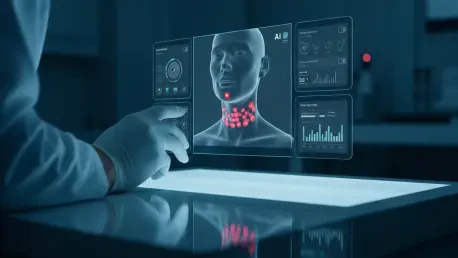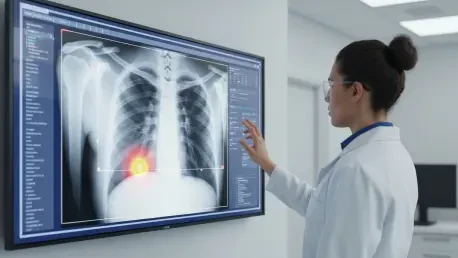
A groundbreaking artificial intelligence tool is poised to redefine the treatment landscape for oropharyngeal cancer, offering a new level of precision that could spare patients from unnecessarily harsh therapies while ensuring high-risk individuals receive the aggressive care they need. Developed

The intricate and often silent battle for adequate nutrition within the intensive care unit is increasingly being supported by advanced artificial intelligence, promising a future where personalized care is not just an ideal but a data-driven reality. The application of AI represents a significant

A pioneering development in geriatric medicine from the University of Arizona's Gutruf Lab has unveiled an advanced wearable device that employs artificial intelligence to proactively identify the earliest indicators of frailty in older adults. This groundbreaking technology represents a

In a region where a colorectal cancer diagnosis is often synonymous with a grim prognosis due to late detection, a groundbreaking pilot program in Osun State, Nigeria, has ignited new hope. With roughly 80% of patients in the country typically diagnosed at an advanced stage, the disease has

The landscape of virtual healthcare has entered a new and complex phase, where the rules governing patient access and provider reimbursement are no longer uniform across the board. In a significant move that underscores a growing divergence from federal guidelines, UnitedHealthcare announced on

The humble chest X-ray, a diagnostic workhorse for over a century, is undergoing a remarkable transformation, revealing hidden health insights that extend far beyond the thoracic cavity. A groundbreaking study demonstrates how artificial intelligence can empower this ubiquitous and low-cost imaging